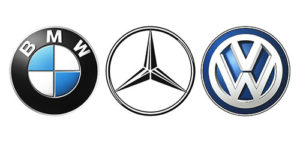Are German Cars Reliable?
 German cars are well known for their engineering and technology so much that it has become a benchmark for the manufacturers. Anyway, these factors don’t dictate the reliability of a car. Are german cars reliable? How did this myth of unreliability come into existence?
German cars are well known for their engineering and technology so much that it has become a benchmark for the manufacturers. Anyway, these factors don’t dictate the reliability of a car. Are german cars reliable? How did this myth of unreliability come into existence?
While there is no blank Yes or No answer to this question, we can safely say that German cars are undoubtedly reliable and dependable. If not, why would they account for one-fifth of the world’s total car production? They are not just reliable but also have the country’s top experts engineering it to perfection.
German cars are gaining popularity worldwide with BMW, Mercedes Benz, Porsche, and Audi, to name a few. On the less pricey front, there is the Volkswagen, Ford-Werke, etc. These are universally loved cars, noted for their performance and technological advancements. But where did this misconception come from?
Why Are German Cars Considered Unreliable?
Let’s start with the fact that German cars are manufactured with European roads in mind. Europe has long, narrow winding roads compared to that of the US, which has straight and wide roads. The same goes for parking spaces; they are also small, and the cars being bigger doesn’t help with parking. Hence the wheel tends to angle inwards when the steering locks, which the drivers in the country are not accustomed to.
Apart from this, several other factors also come into consideration, among which the most important is safety and efficacy. We can all agree that German cars don’t lack in either of these aspects. But it’s the running costs that might seem a bit excessive to many. The cars need more care and maintenance than your regular Toyota or Hyundai. Also, they need to be taken care of by the technicians specially trained by the manufacturers. And then there is the cost of the spare parts; most of them are exported from Germany. German cars are sound when it comes to engineering, even if a little over the top. So the simplest of the inconveniences, which don’t affect the performance or reliability, affect the user’s perception of the car.
What Are the Most Reliable German Car Brands?
German cars are innovative at their best. They also are reliable, and you can trust them with your family’s safety. As long as the owners follow the maintenance schedule, they should face little to no problem with their cars. Among the many German cars, here are the top brands that lead the lineup (in no particular order) when it comes to reliability.
- Porsche
- Volkswagen
- Audi
 Porsche
Porsche
If you have owned or driven Porsche in the past, there is no doubt why the car brand is on this list. The owners face fewer problems compared to other brands. Their engine is also highly efficient and durable, not to mention they are the easiest among German cars to maintain. The Porsche 911 series is synonymous with reliability.
Volkswagen
Not a luxury car, but it has a fan following worldwide due to its reliability and stability. Otherwise called the people’s car, the brand has won the “World Car of the Year” for four years, and that was back in 2012, beating even Porsche 911. Home to the infamous Beetle, Volkswagen strives to protect its occupants in times of an accident with its innovative features like blind-spot detection, crash imminent braking, and more.
Audi
With a history of having the first crash test conducted around 80 years ago, the Audi screams luxury. The brand also has some reliable cars like A3, A7, and A8, with some not so. The advantage of owning an Audi is its depreciation value, which is much better than any other on this list.
German Cars vs. Japanese Cars: Which Is Better?
Germany and Japan lead the unending car market with their innovation and technologically advanced cars. However, they cater to different needs, both quite different from the other. The former has an eye for attention to detail and precision, while the latter is synonymous with affordability and reliability. How do they fare when compared to one another?
German cars are the best in engineering, but sometimes they can overthink and complicate the smallest parts in the name of precision. But Japanese mass-produce their cars; They cater to the Asian mindset aiming at reliability and safety. The spares are easily acquired and long-lasting, which is not the case with the former. German cars can be expensive. On the contrary, Japanese vehicles are affordable. They both have different approaches to vehicles, but the similarity is that quality-wise, they are impressive.
 FAQs
FAQs
Which Is Better: Audi, BMW or Mercedes?
Audi, BMW, and Mercedes are luxury brands. Their quality and reliability are better than other mainstream brands. But Mercedes provides a level of comfort that stays unbeaten by any other brand in the market.
Are German Cars Overpriced?
While it may look so to the customers, you need to remember that luxury provided by brands such as Audi, BMW, Porsche, etc., comes with a price tag. Most of the time, it is not affordable for the common man. Currently, BMW, Mercedes, and even Porsche have come up with models priced at much lower rates than its luxury line.
Conclusion
In short, German cars are reliable as long as you maintain them properly. Have a proper maintenance schedule, and they should last longer without any issues. Brands like Audi have good depreciation values, but contrarily, Mercedes Benz decreases in value. An example of their perfection is the famous Porsche 911 and Volkswagen Beetle, award-winning cars that still are a preference of many drivers both in Europe and the US. Apart from them, Audi, BMW, and Mercedes Benz also have reliable ones in their bucket. Do not forget that Audi was the first car to conduct a crash test 80 years ago!
For over 45 years, Little Germany is a certified Service Center that specializes in full service and repair services for German-made cars. Contact Little Germany for all your auto repair needs (After-Hours form).

Copyright © - Little Germany Tucson